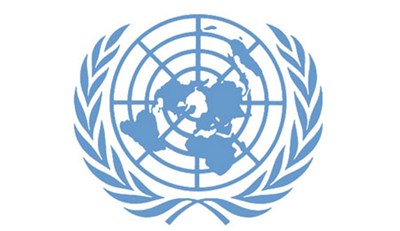Imagine a nonprofit theater showing the value of its volunteer usher program by saying:
We involved 40 ushers in 2015, and they provided 100 hours of service, and since the Independent Sector says the value of a volunteer hour is $23.07, the value of our volunteer usher program in 2013 was $2,307.00.
Here’s what such a statement shows:

- The value of volunteers is that the organization doesn’t have to pay them
- Volunteers save money, because they do work for free.
- Volunteer time, hour per hour, is more valuable than that of all the staff members that aren’t directors, because they are all paid far less than $23.07 an hour.
- The organization could get even more value for its volunteer program if it could get more volunteers doing things it is currently paying staff to do.
- The greater the number of volunteer hours, the greater the value of the volunteer engagement.
How would such a stated value of the volunteer usher program make the ushers feel? Make the receptionist feel? Make donors that are union members feel?
It’s an obviously awful idea. Yet, this is how so many consultants and organizations want nonprofits to state the value of volunteer engagement.
By contrast, I would find the value of a volunteer usher program through collecting data that could be measured against both the mission of the organization and the mission of the volunteer program. Let’s say the mission of the organization is “to provide theatrical works that entertain, enlighten, and have a transformative impact on our audiences, and build an appreciation of the arts in our community.” Yes, I just made that up. I have examples of mission statements for volunteer engagement programs here. Here’s how I would collect that data:
I would find out what impact being a volunteer at the theater had for the ushers. I would find this out through interviews and surveys, asking things like “Why did you want to be an usher at our organization?” and “What have you learned as an usher that you might not have known otherwise about our theater? Or about putting on theater productions?” I would also ask why they think volunteer ushers might be preferable for the theater to paying people to do the work.
I would survey new ushers before they began their volunteering, and then survey them after they had served a certain number of hours, asking them the same questions, to see if their perceptions about theater in general, and our theater, specifically, had changed.
I would ask audience members how ushers help their experience at our theater. I’d do this through surveys and interviews.
I would ask staff members how they believe hosting ushers benefits them, the audience, and the theater as a whole. I would also ask why they think volunteer ushers might be preferable to paying people to do the work.
I would look at the profiles of the ushers, and see what range of age groups were represented, what range of zip codes were represented (based on residencies), and if possible, look at the range of ethnicities represented, and other data, that could show how representative of our community the volunteer ushers are.
If I didn’t have time to do all of this data gathering and interviewing myself, I would talk to faculty members at area universities and colleges that teach classes in nonprofit management, sociology, psychology or sociology, to see if students in one of their classes could do the data collection as part of an assignment, or a PhD student who might want to oversee the project as part of his or her doctorate work. The students would get practical experience and I would get people who, perhaps, people would be willing to give more honest answers to than me, someone they know from the theater.
None of this is vague, feel-good data; it’s data that can be used not only to show the organization is meeting its mission through its volunteer engagement, but also testimonials that can be used in funding proposals and volunteer recruitment messages. It would also be data that could help the organization improve its volunteer engagement activities – something that monetary value also cannot do.
Whether your organization is a domestic violence shelter, an after-school tutoring program, a center serving the homeless, an animal rescue group, a community garden – whatever – there is always a better way to demonstrate volunteer value than a monetary value for hours worked. What a great assignment for a nonprofit management or volunteer management class…
For more on the subject of the value of volunteer or community engagement:
- Contradicting myself?
- We need volunteer police officers – & an overhaul as well
- Volunteering empowers, activates, builds, communicates
- Volunteer engagement is MUCH more than just HR management
- CNCS continues its old-fashioned measurement of volunteer value
- UN Volunteers, IFRC, ILO & others make HUGE misstep
- UN Agencies: Defend your “internships”
- Fight against unpaid internships will hurt volunteering
- Advice for unpaid interns to sue for back pay
- It’s real: the unpaid internships & volunteers controversy
- EU agencies exploiting interns?
- When to NOT pay interns, redux
- Pizzeria tries to recruit unpaid interns, feels Internet’s wrath
- Do NOT say “Need to Cut Costs? Involve Volunteers!”
- Value of Volunteers – Still Beating the Drum
- Judging volunteers by their # of hours? No thanks.
- Another anti-volunteer union
- Criticism Continues for UK Government Talk Re Volunteers
- International Association of Fire Fighters is anti-volunteer
- I agree with this anti-crowdsource campaign



